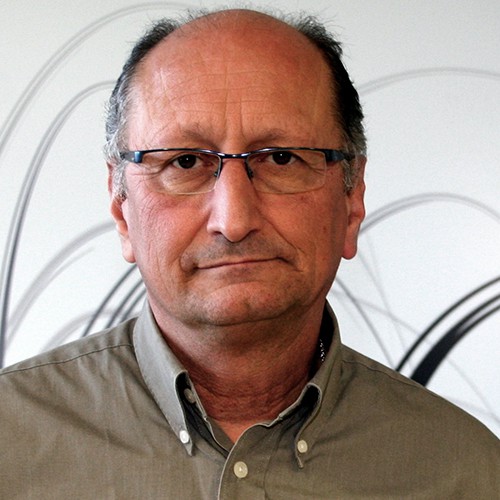NEW IDEAS IN COMPLEXITY SCIENCE
On May 24th, 2018, the First External Faculty Meeting of the Hub started with a public conference.
In short talks complexity scientists from all around globe shared their visions on the question “Complexity: Where do we go from here?”
What are the open, the most pressing, the most promising questions to an understanding of complexity and Big Data?
Find the talks of all conference participants (in order of appearance) on our Youtube channel in the playlist of the conference.
An overview with photographs of the event and links to all available slides can be found here.
MAXI SAN MIGUEL
“WHAT WE OBSERVE IS NOT REALITY, BUT REALITY IN RESPONSE TO OUR WAY OF QUESTIONING”
Maxi San Miguel from Arizona State University argues that complexity science could be the beginning of a new scientific renaissance, as it is based on a new way of thinking. “It is a new scientific culture, a new way of looking at reality that goes beyond the idea of experts or specialists in a given discipline,” he says.
Beside this, complexity science is also about “engineering” with control and the use of data it it’s center. “It is about how to use data to control systems in a more efficient way so that they have a better performance. And it is about learning from this data how to be able to predict their behavior,” he says.
The state of mind of a complexity scientist, Maxi argues, is when the two ingredients—science and engineering—become entangled. Evenly important is the interaction of complexity scientists. Because interaction brings about the emergence of new phenomena. “And this is what I would like to call the complex systems approach that emerges from this interaction.”
The complex systems approach, Maxi is convinced, can transform society by transforming the way of thinking and the way to address problems. This is what he calls the new scientific renaissance.
And this thinking has consequences for society:
- It could produce a new education system, with students—as well as teachers—learning across disciplines and learning based on data analysis.
- It will lead to a de-classification of science, with many of the traditional disciplines becoming meaningless while new disciplines appear as a spin-off of the complex systems approach.
- It will change our ability to define proper questions: questions that take into account the limits of probability and the limits of control. “These questions should take into account that what we observe is not reality but reality in response to our way of questioning,” Maxi points out.
“What I think we need to do is: to go out there and to disseminate to society that there is a new way of thinking, a scientific renaissance”, he says at the end of his talk. “This new way of thinking is important and instrumental to answer questions of social relevance.”
See the video in full lenght here:

